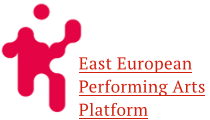East European Performing Arts Platform (EEPAP) supports the
development of contemporary performing arts (dance and theatre)
in 18 countries of Central and Eastern Europe.
Call for Participation: Voices of Culture ‒ Structured Dialogue between the European Commission and the cultural sector
Voices of Culture ‒ Structured Dialogue between the European Commission and the cultural sector provides a framework for discussions between EU civil society stakeholders and the European Commission with regard to culture. It aims to strengthen the advocacy capacity of the cultural sector in policy debates on culture at a European level, while encouraging it to work in a more collaborative way.
he European Commission has decided to open a Structured Dialogue with some selected stakeholders on the topic "Skills, Training and Knowledge Transfer: traditional and emerging heritage".
The Commission Communication of July 2014 (Towards an integrated approach to cultural heritage for Europe: http://ec.europa.eu/culture/library/publications/2014-heritage-communication_en.pdf) highlighted the many challenges that the heritage sector is facing: increased risk of destruction due to natural or man-made hazards, decline in participation in traditional cultural activities, digitisation and online accessibility of cultural content which is shaking up traditional models and transforming value chains.
While European expertise in heritage preservation and conservation is well renowned, the combined effect of the age pyramid and cuts in public budgets are affecting the transmission of knowledge and skills to the younger generations. This is true both for the tangible and the intangible cultural heritage. A lack of high-level professionals in "traditional" occupations is already predictable, therefore it is important to explore possible responses to short, medium and long terms, especially as the cycle of professional preparation (training, learning, experience) in these areas is often very long.
This happens while the international demand for specialized, technical or administrative training in the whole chain of heritage skills is constantly increasing, including the reception and training of foreign professionals. Thus, it is urgent for Europe to consider the responses to enhance, promote and protect all these traditional, technical and professional skills.
Therefore two meetings (a brainstorming and a dialogue) will be held in 2017 to discuss these topics. The dialogue will be structured around the following main questions; however it will be open to participants to propose additional or different issues to focus on during the meetings and in the final report of the process:
- What are the boundaries of "traditional" and "emerging" (tangible, intangible and digital) heritage professions?
- What are the current challenges in the transmission of traditional knowledge faced by the heritage sector? Could you provide examples of how these challenges have been addressed and overcome by the cultural sector?
- What are the skills and training needs related to the "emerging" professions, including those concerning the digital shift? Could you provide examples of how these needs have been faced by the cultural sector?
- In what way is the sector professionalised? What structures are currently in place to deliver professional practitioners in the heritage sector?
- What is needed to enhance/develop capacity-building for cultural heritage and professionals?
The call is open to representatives of the cultural and creative sectors (professional organisations, cultural institutions, non-governmental organisations, European networks, foundations, private organisations, etc.) with relevant expertise on the topic “Skills, training and knowledge transfer: traditional and emerging heritage”, who would like to contribute to discussions with the European Commission. Organisations applying must be from one of the 28 EU Member States.
For more information and info on how to apply, go here.
